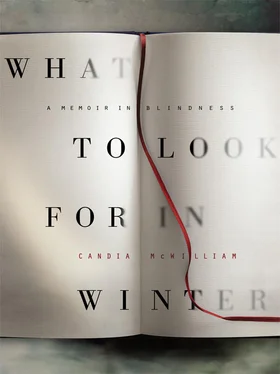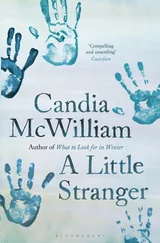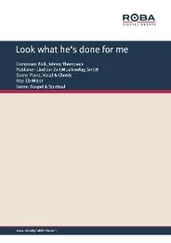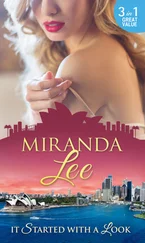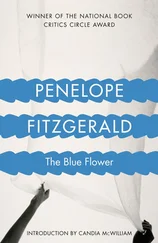In the pale gap of reading time that I was granted I came too upon this, from On Modern Art by Paul Klee (1924): ‘Had I wished to present the man “as he is”, then I should have had to use such bewildering confusion of line that pure elementary representation would have been out of the question. The result would have been vagueness beyond recognition.’
This last refusal of distraction is entirely true to the line my father in his life took and the lines he made and the lines he drew.
Looking, now, at the high window and the plain grey of the walls, though I see very little clearly, I do see a composition that is timeless: a young woman of lovely form at work at a table on which rest some vessels and a jar of flowers. If I scowl and make horrible faces, I can see what I already know, that the young woman is Liv, that the vessels are mugs, glasses and bottles of scent and that the flowers are what must be gathered in their season and cut and cut again, sweet peas.
All that is required is a frame, and it is that which I’m attempting to construct with these words. By opening my mouth very wide, as though I’m screaming, but without sound, I can open my eyes in sympathy and read from The Soul of the Eye what it is that Poussin has to say about framing his picture The Israelites Gathering Manna :
I beg of you, if you like it, to provide it with a small frame; it needs one so that, in considering it in all its parts, the eyesight may remain concentrated, and not distracted beyond the limits of the picture by receiving impressions of objects which, seen pell-mell with the painted objects, confuse the light.
It would be very suitable if the said frame were gilded quite simply with dull gold, as it blends very softly with the colours without disturbing them.
It is very difficult indeed to prevent the memory from confusing the light; as for the frame, I am attempting to gild it not at all save where it is of its nature golden.
Fram says that he never reads the childhood part of any biography, since childhoods bore him. He also used to say to me that one of my benefits as a wife was that I had no family, which is, strictly, very nearly true.
But I did have and do have the long, and for the most part by definition insular, since it took place and takes place on an island, family romance with the six Howard children and their parents, their stepmother, their beastly dogs, their fantastically frightful paternal grandmother, who on first sighting me enquired, ‘Who is the common girl in the corner?’ and who ended up by making revolting but much-loved bargello cushions for my first wedding present, embroidered with the coat of arms of my husband, and to whose wheelchair we tied fifty pink and fifty white balloons on the christening of my first son, so that the tiny fierce termagant was lifted up in her chair to the summer sky. She once again became, as she must have been in a hundred ballrooms when she was Di Loder, one of the identical Loder twins Diana and Victoria, who were on nonspeakers for half a century, a red-haired beauty afloat in white and pink, the cynosure of all eyes.
In order to make the crossing to the island of Colonsay it is necessary to end this chapter here.
Liv, who is twenty-two, has just asked me, at the start of our working day together, whether it would be better to be stone-blind than to be in this flickering and changeable state. As it happens, I have been up working for several hours and am therefore very close to stone-blind, but still it is inflected and there are colours within my eyelids. I seem to remember from accounts written by ‘properly’ blind authors like Ved Mehta and Stephen Kuusisto, that ‘real’ blindness can also be continually modifying within its veils and infinite shadings of black, or, more often, white. Of course, it depends on the kind of blind you are.
Liv’s question is an intelligent one. Perhaps it is the question; I’m certainly honoured she asked it, since it demonstrates a levelness of attitude to her employer and the peculiar situation she finds herself in with that employer, who is me. She made the point that her mother is averse to change, but that she, Liv, were she to be visited, heaven forbid, by such an affliction, would attempt to extract from it all the good that could be.
I recognise myself when Liv speaks of someone averse to change, but my life has been so zigzagged in its shape and so full of abrupt change, much of it caused by me, that I am unsure what not-changing — one might call it security — feels like. Perhaps this blindness is just another, negative, attempt by my mind to deal itself some security, by reduplicating the loneliness in which I found myself with that loneliness’s thickening through blindness. This remains to be seen.
I made a short, parodically adult, not totally convincing speech to Liv about acceptance of whatever comes one’s way, and the necessity to make an honest attempt at turning it to the good. I also told her the plain truth, which my friend Julian Barnes regards as tosh, that I feel as though, if I’m hurt, others whom I love will not be. The scapegoat theory, he calls it, and I thought of the dreadful Holman Hunt painting.
Still, dum spiro, spero , otherwise why would I be visiting so many doctors, at least three of whom seem resistant to the concept of my registering as blind, even with the promise of a guide dog, parking concessions, and other benefits that come with such officially recognised status?
My grey cat Rita has occupied the chair I sit in to Liv’s right. Fram has just rung to say that he is going with Minoo and Claudia to stay with mutual friends in Yorkshire over the bank holiday weekend and that he had a happy birthday yesterday. Sometimes I cannot be sure when I’m going to wake up and realise that it’s all been a dreadful dream and that I am well again and not alone and can sit in my own chair and read a book.
I say to myself, ‘Worse things happen at sea.’ After all, none of what is sad is happening to anyone but me. I must take Fram’s advice and detach, detach, take sannyasa insofar as a middle-aged Episcopalian can. I’m not made of the material that makes a modish new age Hindu or Buddhist. Fram is a Zoroastrian, a faith that accepts no converts, although it is so very practical a religion and way of life. But all that is for later.
If Liv hadn’t asked me her plain courageous question, we would have begun this chapter with a meditation on the place of magazines, especially fashion magazines, in contemporary life. Let’s get it over with and then we can set about the serious business of addressing the ferry that takes you over to the island of Colonsay.
We were not allowed to read magazines at boarding school. This heightened their value dramatically. We had in our house at school at least one accredited beauty and I think it was she who smuggled in a copy of Vogue. Her name is so apposite for a beauty that let me put it in; she is the granddaughter of Daphne du Maurier and her name is Marie-Thérèse de Zulueta. Although we were not allowed to watch on television the funeral of the late King Edward VIII, then Duke of Windsor, because he had been an adulterer, Marie-Thérèse was allowed to watch the film of The Birds , because her grandmother wrote it. She was allowed to sit up with our matron, Mrs Fraser, and watch all that avian horror on the little brown box.
Marie-Thérèse had hair thick as a squaw’s and the colour of corn that reached her waist. She had an olive green velvet hair ribbon, bendy eyelashes, a glamorous stepfather and a glamorous father and was like me addicted to Nestlé condensed milk sucked from the tube; that bears some looking into. Boys fell on sight of her like ninepins. This in the days when we had to cross the road if we saw a group of boys from the Boys’ School approaching. Men fell too for her mother. They both had faces of the ideal proportion, clear brow, low large eyes, perfect mouth, the features disposing themselves in baby-like proportion in the lower two-thirds of the face.
Читать дальше
